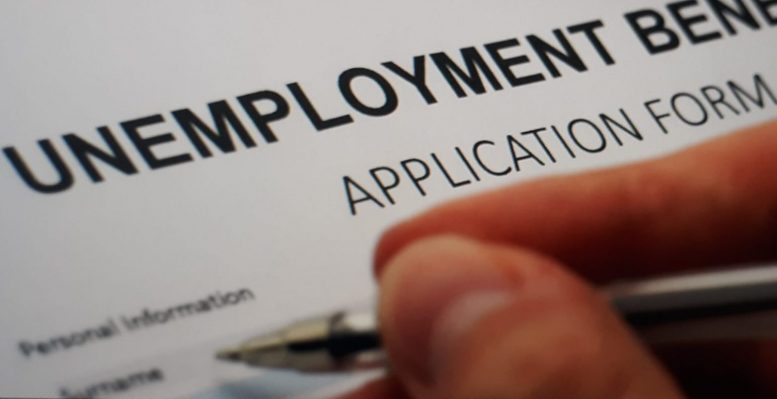By JAN LARSON McLAUGHLIN
BG Independent News
A few days before Christmas, David Ridenour got a curious item in the mail. It was a debit card from U.S. Bank, which is used by Ohio Jobs and Family Services to distribute unemployment compensation.
There were a few problems with that.
“I am retired and never filed for unemployment,” said Ridenour, of rural Bowling Green. “I never ever applied with them. I couldn’t figure out why I would be getting a debit card from them.”
He is far from alone.
On Friday, Ohio Attorney General Dave Yost asked Congress to protect hundreds of thousands of working Ohioans who may have had fraudulent unemployment claims filed in their names.
The Ohio Department of Job and Family Services is expected to send 1.7 million 1099-G forms this month to those who ODJFS has record of receiving unemployment benefits. However, it is anticipated that a significant amount of those forms will likely go to Ohioans who did not file for or receive unemployment assistance.
The total number of victims is unclear at this time.
“Construction workers, daycare providers, service industry workers – the backbone of this state – have worked hard throughout the pandemic and now the government is going to ask them to pay taxes on money they didn’t receive – it’s just not right,” Yost said in the press release.
Other states are reporting similar problems with fraudulent claims, so Yost is turning to Congress for help.
It is unknown how many Wood County residents have fallen victim to the scam.
In Ridenour’s case, after getting the debit card from U.S. Bank, he quickly learned that hackers are applying online for unemployment in someone’s name and if the unsuspecting individual activates the card, the scammers can access the money.
In the month since he received the unwanted debit card, Ridenour has called and emailed every number and address he has been given to report the fraud. He has yet to hear anything from the state, he said.
First Ridenour tried calling the bank and Ohio Job and Family Services.
“The lines were all busy. I was told to call back later,” he said.
He filled out all the online forms recommended for people victimized by the fraud.
“I never got a reply that they had even been received,” he said.
So Ridenour emailed the Ohio Attorney General’s Office, where he was told to call the JFS hotline. He tried to explain, “that’s what I’ve been doing, and I can’t get through.”
He sent an email to JFS, and “got absolutely no response.”
Ridenour said he called the Wood County Job and Family Services Office, but was told that office only handles Medicaid fraud.
He was given an 1-800 number to call. He waited for an hour before his call was shifted to the wrong department.
“I have no idea if someone has filed in my name fraudulently,” he said. “I can’t find anybody to talk to.”
As instructed, Ridenour reported the fraud to the Wood County Sheriff’s Office. According to the sheriff’s office, four Wood County residents have reported unemployment claims being applied for in their names this month.
Bowling Green Police Division has also taken similar reports from city residents. And social media posts show that many more local residents have been affected.
On Thursday, Ohio Lt. Gov. Jon Husted reported that more than half of the 1.4 million Pandemic Unemployment Assistance benefits claims made in Ohio to date have been flagged as potentially fraudulent.
About 796,000 PUA claims in Ohio are suspected as fraudulent, Husted said. As of last week, more than $7.8 billion in PUA payments had been made to more than 827,000 Ohioans, according to the Ohio Department of Job and Family Services.
Scammers have reportedly sought to use people’s identities to receive PUA benefits because less documentation was required than for traditional unemployment benefits. However, the latest coronavirus relief package, passed late last month, now requires additional employment documentation to get PUA benefits, making it harder for crooks to exploit the program.
The state’s efforts to detect fraud have been hindered by ODJFS’ ongoing work to update its 17-year-old computer systems, Husted said on Thursday.
The computer system was overwhelmed last year when Ohioans flooded the state with benefits claims after being laid off or furloughed when businesses were ordered closed during the coronavirus crisis.
A lot of Ohioans are just now finding out that they’ve become the victim of identity theft, as they receive a 1099 tax form from ODJFS for jobless benefits dishonestly filed for in their names.
In his press release, Yost said he believes there’s enough evidence of fraud to ask Ohio’s congressional delegation to provide “safe harbor provisions” for affected Ohioans – such as suspending tax collection efforts and pausing fees or interest from taxes owed on the claims until they are investigated.
Anyone who finds that their name has been used to obtain unemployment benefits should take three steps, according to Tom Betti, spokesman for the department of Ohio Job and Family Services.
First victims should follow directions enclosed with the 1099 and report the identity theft to ODJFS via a big red button on the department’s website as soon as possible. That will allow the state to conduct investigations and, if necessary, issue a corrected 1099 to the Internal Revenue Service (IRS).
Second, victims should file their taxes as they normally would, without factoring in the scam – though they should follow up with ODJFS if they don’t get a corrected 1099.
Finally, Ohioans who are scammed should take steps to protect their identity. People who want to see whether they’ve been victimized can receive a free credit report online, Betti said.

